25.05.25 media roundup
Notes on fascism, the importance of fiction, nonchalance, the ego, curiosity, and more.
Welcome to this week’s installment of media I consumed instead of doomscrolling! Lately, I have been feeling particularly affected by everything that is happening around the world, and doing my best to stay informed sometimes comes at the expense of my own well-being. That is why this week I gravitated toward pieces that are perhaps a bit more positive or hopeful as well as just pieces about things that I’m passionate about which definitely helped. Hope you enjoy <3
Video essay dissecting the connection between Miuccia Prada’s first show for Fall 1988 and her nuanced commentary on fascism, particularly in the context of post-WW2 Italy after Mussolini’s rule.
For the past couple of days, I have been attending lectures taught by the CEO of Tom Ford on retail business (for context I study Fashion Business in Italy). Being able to attend these lectures has been incredibly enriching and something that I found particularly interesting was the discussions that we had around what the label “made in Italy” means and the value that it holds in a global context.
We didn’t necessarily talk about its history, however, I did manage to find a very clear connection between our current perception of “made in Italy” garments and the role of fascism in the rise of it, which I learned more about through this video essay. I won’t get into it here but I do think, for me, this served as a reminder to go past my superficial understanding of topics I am interested in, to look past the tip of the iceberg as there is where the substance of things lie. It also served as a reminder of why I love fashion so much. To me, fashion is a multi-faceted universal language that allows us to understand, challenge, and create our reality.
When memories from fiction become part of who you are on Psyche
Essay exploring the impact of the memories of fictional stories, from shows to movies to books, on our identity, personal development, and our capacity for empathy in comparison to real-life memories.
I’m sure we all have certain shows or movies that have been essential parts of our lives, one that stands out for me is Adventure Time. I had a phase that lasted a few years where my life was consumed by it, from my duvet to action figures, to books and plushies, everything was Adventure Time themed. I had never in my life felt so understood, even though my obsession alienated me even further from my peers, I knew that there was this magical kingdom where all of my big feelings and all of the things I noticed were wrong with the world made sense.
Looking back at these years, so much of who I am today is rooted in the realizations that I had while watching the show. My love for it went dormant for a few years as I was dealing with the hell that was trying to fit in at an all-girls catholic school as a teenager. However, when I noticed that I had found myself astray from my core values and beliefs in the way I was leading my life, I returned to my Adventure Time roots and have rewatched the show every year since.
From being the subject of essays for my philosophy class to a reminder of simpler times at moments of homesickness, Adventure Time seemed to be an anchor and a tool for understanding the great mysteries and troubles of my life. This essay does a wonderful job at breaking down why this happens and for me, it was a beautiful reminder of the importance of fictional stories in the development of our identity.
Substack post criticizing the collective phenomenon where Gen Z seems to have adopted a behavior of detachment where lack of empathy and judgment have hindered our ability to foster human connections.
I think this epidemic is definitely rooted in our fear of rejection. Allow me to elaborate. I see first-hand how so many people water themselves down to be able to be pooled together in the same homogenized puddle, hiding and locking away the parts of themselves that make them stand out. The fear of our genuine selves, our passions, our talents, our flaws, being exposed without this nonchalance armor leaves the most tender and raw versions of ourselves on full display for the world to judge and reject.
As the piece highlights, so much of this phenomenon is rooted in how we have been pushed to create our online personas, which ultimately ends up bleeding over into real life. When I took a few months off of social media last year this became shockingly evident, it gave me so much clarity in regards to how I chose to present myself as well as the things that I value. I am obviously now back on social media but taking a step back for a while definitely shifted the way that I express myself.
The second that we step out of this curated, performative identity that we created for ourselves and allow ourselves to be seen, is when we are also setting ourselves up for success and authentic growth and connection. Of course, we are also exposing ourselves to rejection but to me, rejection seems like a small price to pay for the freedom that comes with allowing others to see you trying.
The Bliss of a Quieter Ego on The Atlantic
Essay proposing the concept of a “quiet ego” to lead a more fulfilling and purposeful life which counteracts the current egotistical social and cultural context.
I have a list on my phone of my “Roman empires”, which is of course comprised of things that I am constantly thinking about. I have an array of pop culture moments, shows, and movies but the one that stands out in connection to this essay is the following: (as seen on this Substack post as well)
We really do think too much about ourselves. I even think too much about my ego which ultimately probably ends up inflating it even more. Either way, during my counter-productive reflections I’ve come to a current conclusion (I say current because I’m constantly changing my mind). I believe that the total dissipation of the ego, aka an ego death, ends up creating an existence in a vacuum isolated from the human experience.
The point is not dissolving the ego but rather calibrating it, as it is the tool that allows us to navigate the world. The essay proposes really great questions that we can ask ourselves in order to become more self-aware about the things that are actually under our control and about our role in respect to others around us and our context. This self-awareness is the foundation of a “quiet ego”.
Podcast where Bella Freud interviews renowned performance artist Marina Abramović where she opens up about her upbringing, pushing the limits of the body in connection to art, and the importance of love while breaking down some of her most important performances.
There’s something about performance art that I find so incredibly admirable, the fusion between art and the body in such a literal way creates so much impact. Marina Abramović, as controversial as she may be, has left an undeniably deep mark on the world by being a trailblazer in the expansion of the definition of art. Listening to her look back at her life and discussing the lessons that she has learned along the way, about life, love, and about art made me reflect on how these are all one and the same.
Ultimately, what stayed with me is the understanding of the body as a tool for expression, even if we’re not pushing our bodies to the limits for hours on end in front of an audience. The way in which we use our bodies in our daily lives holds so much power, it allows us to materialize and contextualize abstract concepts or feelings in a way that is profoundly intimate. Creating mini versions of performance art through rituals and experiments is perhaps an interesting way to understand ourselves.
How curiosity rewires your brain for change on Big Think
Article outlining different ways in which reframing our thought processes and reactions to change with curiosity can cognitively change our perception of the world.
I consider myself a very curious person, I get easily bored and crave depth. I am constantly googling things and I have a list on my notes app of the questions that arise throughout my day so that I can look them up once I get home. One of my interests is etymology, I am absolutely fascinated by the construction of language and all of the history behind it. My point is that approaching life through a curious lens makes the experience significantly more broadening, and whenever I find myself not having this thirst for more is when I know that something is probably not going well internally.
The way that this piece frames curiosity as a way to face uncertainty and discomfort through a more flexible perspective really resonated with me. Lately, whenever I find myself getting affected by certain circumstances or people around me I distance myself emotionally from the situation and I approach it as a social experiment, breaking down and exploring the how and the why of things through a neutral stance.
Substack post containing a graphic essay arguing that the use of AI, particularly in the context of art and the value behind its creative process, is theft.
A couple of days ago we were having a class discussion regarding sustainability in the fashion industry and whether or not our generation actually cares about it. Long story short, my bubble was burst when I realized the grand majority of my peers don’t actually care, I of course, spoke up about my beliefs and perspective but ultimately landed on the conclusion that convenience unfortunately overrides values for most people.
Connecting this back to the use of AI, I see almost every single person around me actively using it, even my teachers are encouraging us to use it as a means of visualizing our concepts. The fact that AI has normalized the outsourcing of such complex, grueling processes to end up with soulless, robotically perfect outcomes is discouraging. Collectively, the world is turning a blind eye to the ethics of AI in almost every aspect, and this graphic essay encapsulates so much of what needs to be discussed regarding this reckless use of AI.

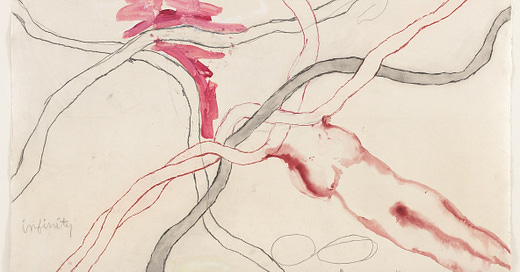



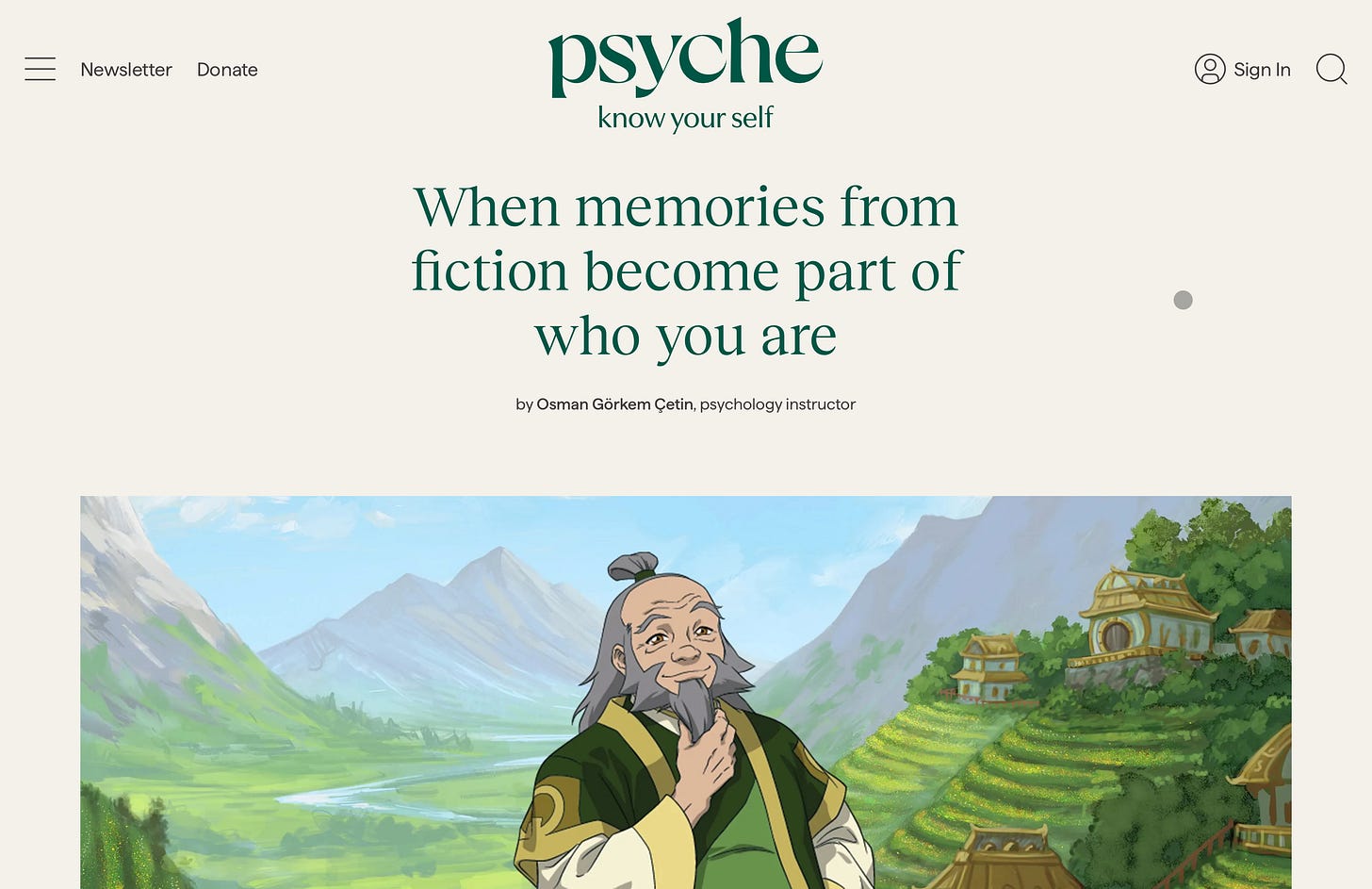
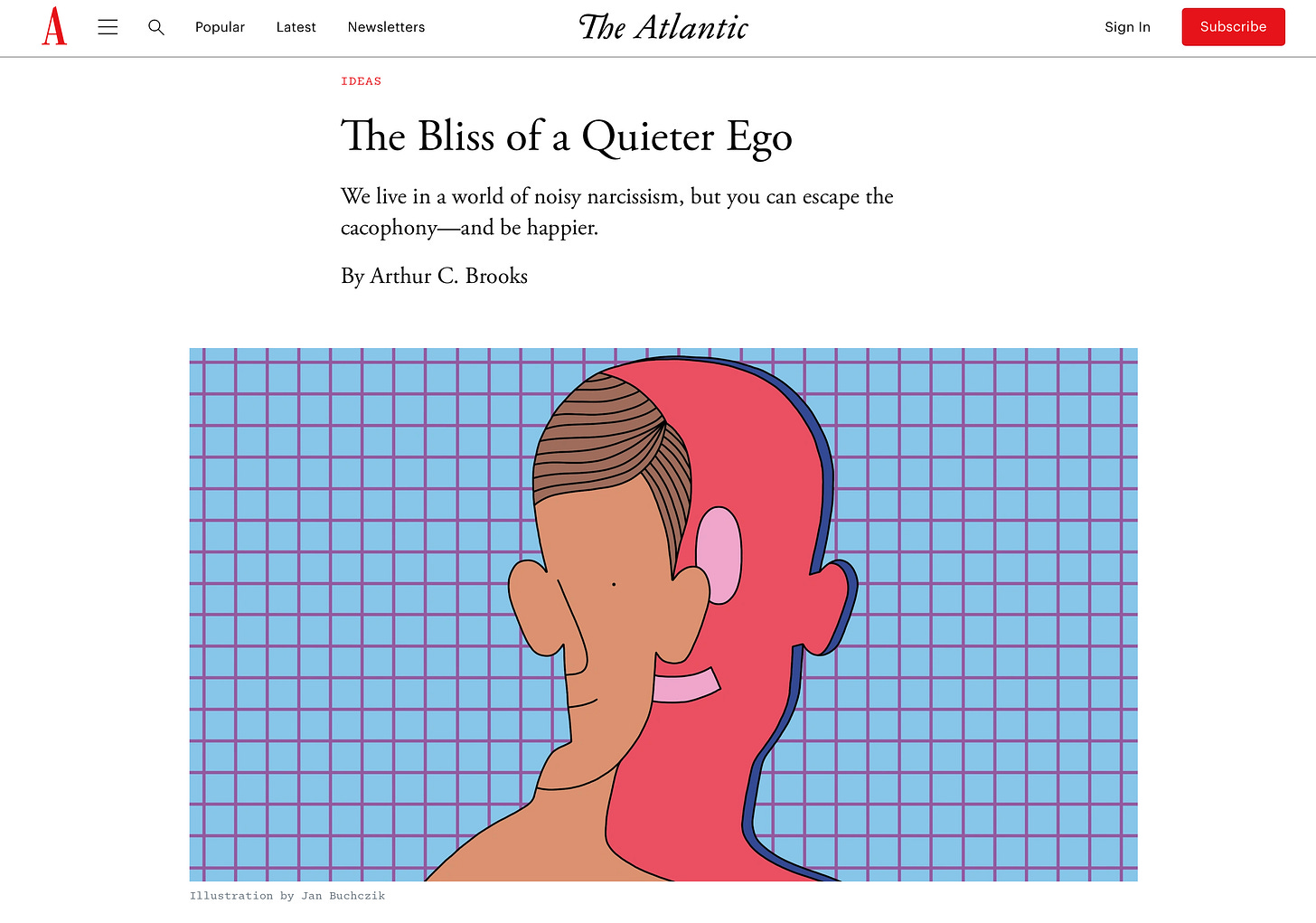
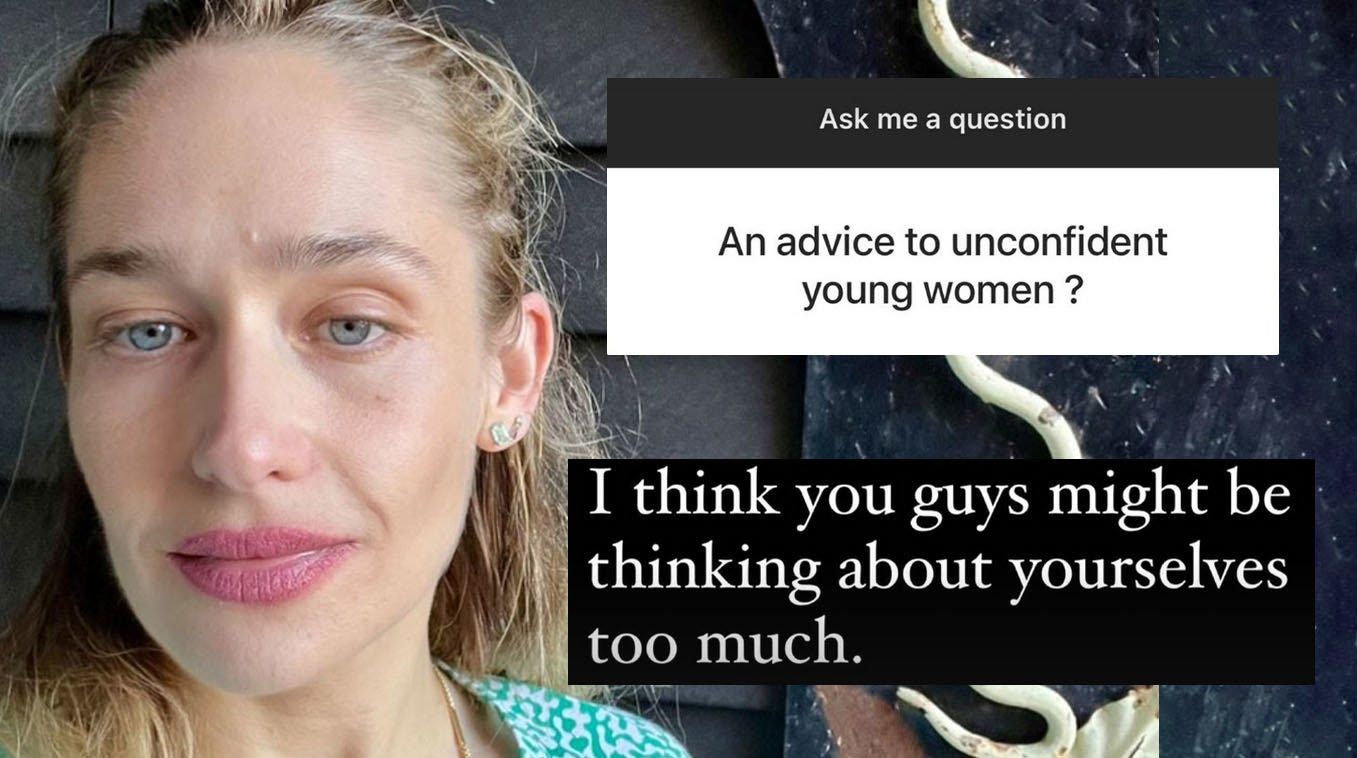
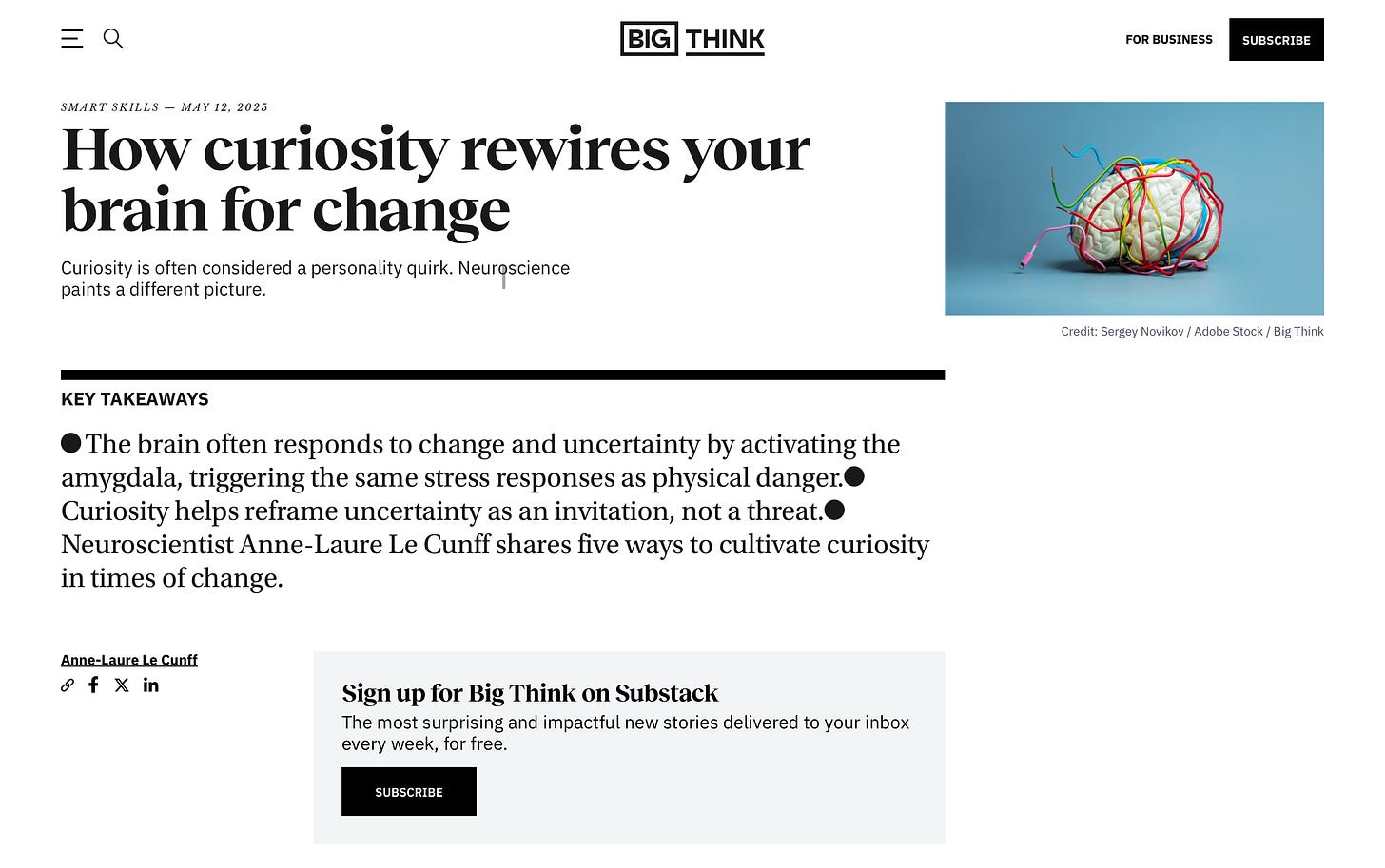

Thank you so much !
Adventure time 💛